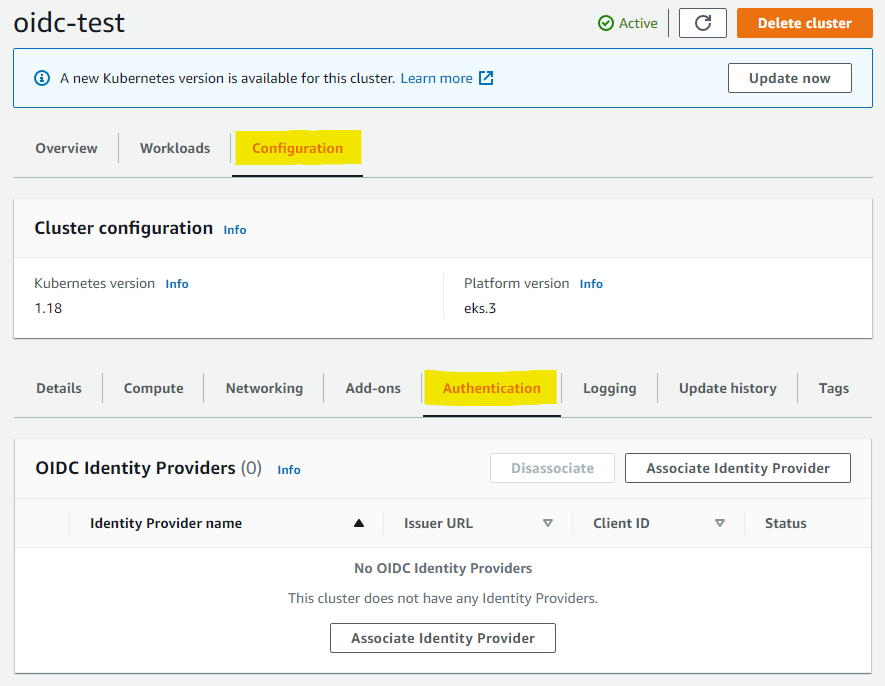Containers
Tag: security
Building STIG-compliant AMIs for HAQM EKS
As more organizations required to run hardened virtual machines to increase security to meet the internal compliance adopt Kubernetes, there is a need for hardened HAQM Machine Images (AMIs) that work with HAQM Elastic Kubernetes Service (HAQM EKS). There are multiple options to choose from. One solution is to use Bottlerocket, a special-purpose OS from […]
Protect Kubernetes workloads from Apache Log4j vulnerabilities
Log4j is among the most popular and highly used logging frameworks in Java-based applications. On December 9, 2021, the world became aware of zero-day vulnerabilities CVE-2021-44228 and CVE-2021-45105 affecting the popular Apache package. Any attacker who can control log messages or log message parameters can execute arbitrary code loaded from malicious LDAP servers when message […]
Container scanning updates in HAQM ECR private registries using HAQM Inspector
We announced a new HAQM Inspector last week at re:Invent 2021 with improved vulnerability management for cloud workloads. HAQM Inspector is a service used by organizations of all sizes to automate security assessment and management at scale. For HAQM Elastic Container Registry (HAQM ECR) private registry customers, this announcement brings updates, enhancements, and integrations to […]
Enabling mTLS in AWS App Mesh using SPIFFE/SPIRE in a multi-account HAQM EKS environment
NOTICE: October 04, 2024 – This post no longer reflects the best guidance for configuring a service mesh with HAQM ECS and HAQM EKS, and its examples no longer work as shown. For workloads running on HAQM ECS, please refer to newer content on HAQM ECS Service Connect, and for workloads running on HAQM EKS, […]
Introducing OIDC identity provider authentication for HAQM EKS
Today, we introduced user authentication for HAQM EKS clusters from an OpenID Connect (OIDC) Identity Provider (IDP). This feature allows customers to integrate an OIDC identity provider with a new or existing HAQM EKS cluster running Kubernetes version 1.16 or later. The OIDC IDP can be used as an alternative to, or along with AWS […]
Using Windows Authentication with Linux Containers on HAQM ECS
This post shows how to configure a Linux container running on HAQM Elastic Container Service (HAQM ECS) to connect to a SQL Server database using Windows (or Integrated) Authentication. Windows Authentication is the recommended mechanism to connect to SQL Server databases, but using it can be challenging when running containerized workloads.
Results of the 2020 AWS Container Security Survey
In 2019 we carried out the first AWS Container Security Survey and now we have the results of this year’s survey for you available. As in 2019, we conducted an anonymous survey throughout 2020 amongst container users on AWS. From the 655 people who visited the survey, 295 started it and 156 completed it (completion […]
Implementing Runtime security in HAQM EKS using CNCF Falco
Many organisations are in the process of migrating their applications to containers. Containers provide application-level dependency management, speedy launches, and support immutability. This can help reduce costs, increase velocity, and improve on efficiency. For securely managing the container lifecycle, container image hardening, and end-to-end security checks are critical factors. Containers need to be secured by […]
Designing a secure container image registry
As organizations move to containers, there can be a sense that they are losing control or visibility of the software that is deployed to their environments. Historically, once a server is in production, a scanning tool runs on a regular basis to detect vulnerabilities on the operating system. Once a vulnerability is detected, an operations […]
Using Gatekeeper as a drop-in Pod Security Policy replacement in HAQM EKS
Jason Umiker If you are managing a Kubernetes cluster or you are a security professional responsible for one then you likely have heard that you should be implementing Kubernetes Pod Security Policies (PSPs) on the cluster in order to improve your security posture. Using PSPs can help to block pods from being disruptive to their […]









